Reflecting on Two Years of Taliban Rule
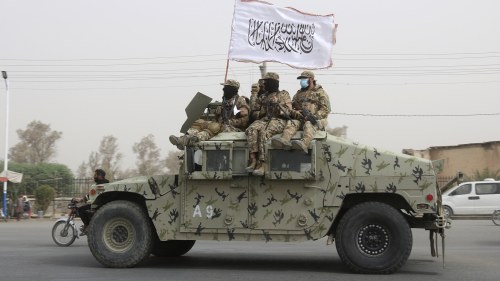
The anniversary of the Taliban's return to power has reignited a debate about how best to support the Afghan people.
To commemorate the fall of Kabul and the restoration of the Islamic Emirate of Afghanistan in 2021, Taliban authorities declared Tuesday, August 15 a national holiday. Across the nation, supporters of the Taliban took to the streets, chanting “Long live the Islamic Emirate of Afghanistan” and “Happy Independence Day.”
For other Afghans, the milestone was a devastating and grim reminder of the new reality they face under the Taliban’s relentless and uncontested rule. And for many around the world, the anniversary reignited the debate of how best to engage the Taliban in support of the Afghan people.
Some experts argue that the United States should recognize the Taliban as the legitimate government of Afghanistan and unfreeze Afghan assets, while others assert the various ethical and diplomatic concerns that doing so would raise. Looking back at polling from a 2021 Chicago Council-Ipsos survey and the 2022 Chicago Council Survey, most Americans support policies that help the Afghan people and oppose those that normalize relations with the Taliban.
The Second Era of the Taliban
Immediately following the Taliban’s takeover, the international community suspended all developmental and economic assistance granted to Afghanistan by USAID, the World Bank, the International Monetary Fund, and the Asian Development Bank, among others. The United States also froze $7 billion in assets belonging to the Afghan central bank that were held in US financial institutions and halted all shipments of cash to the country to prevent the Taliban from accessing the funds.
At the time, 75 percent of public spending in Afghanistan was funded by foreign aid, and public services, like healthcare and education, heavily relied on assistance from international humanitarian organizations. Together, the imposition of sanctions, seizure of Afghan assets, and suspension of international aid brought economic activity in Afghanistan to a standstill, plunging the country and its people deeper into a humanitarian crisis. Two years later, Afghanistan’s economy is on the brink of catastrophe and the population is at a higher risk of famine than they have been in recent history.
The Afghan people have also been subjected to severe human rights abuses at the hands of their new leadership. The rights of women and girls have been eviscerated; dissidents and former government officials have been arbitrarily arrested, tortured, and publicly executed; and civil society organizations have been dismantled. Coupled with the economic collapse, the Taliban’s authoritarian rule has prompted 1.6 million Afghans to seek refuge in neighboring countries—many of whom were doctors, teachers, lawyers, and engineers whose departure has left Afghanistan without the practitioners necessary to sustain critical public services. The Taliban’s resurgence has entrenched the country into one of the world’s worst humanitarian disasters and its new leadership does not have the institutional capacity nor the international support to remediate it.
A Balancing Act
Polling from an August 2021 Ipsos-Chicago Council Survey reveals that, in the immediate aftermath of the Taliban’s takeover of Afghanistan, a greater percentage of Americans thought the United States should have limited diplomatic relations with the Taliban than full diplomatic relations or none at all.
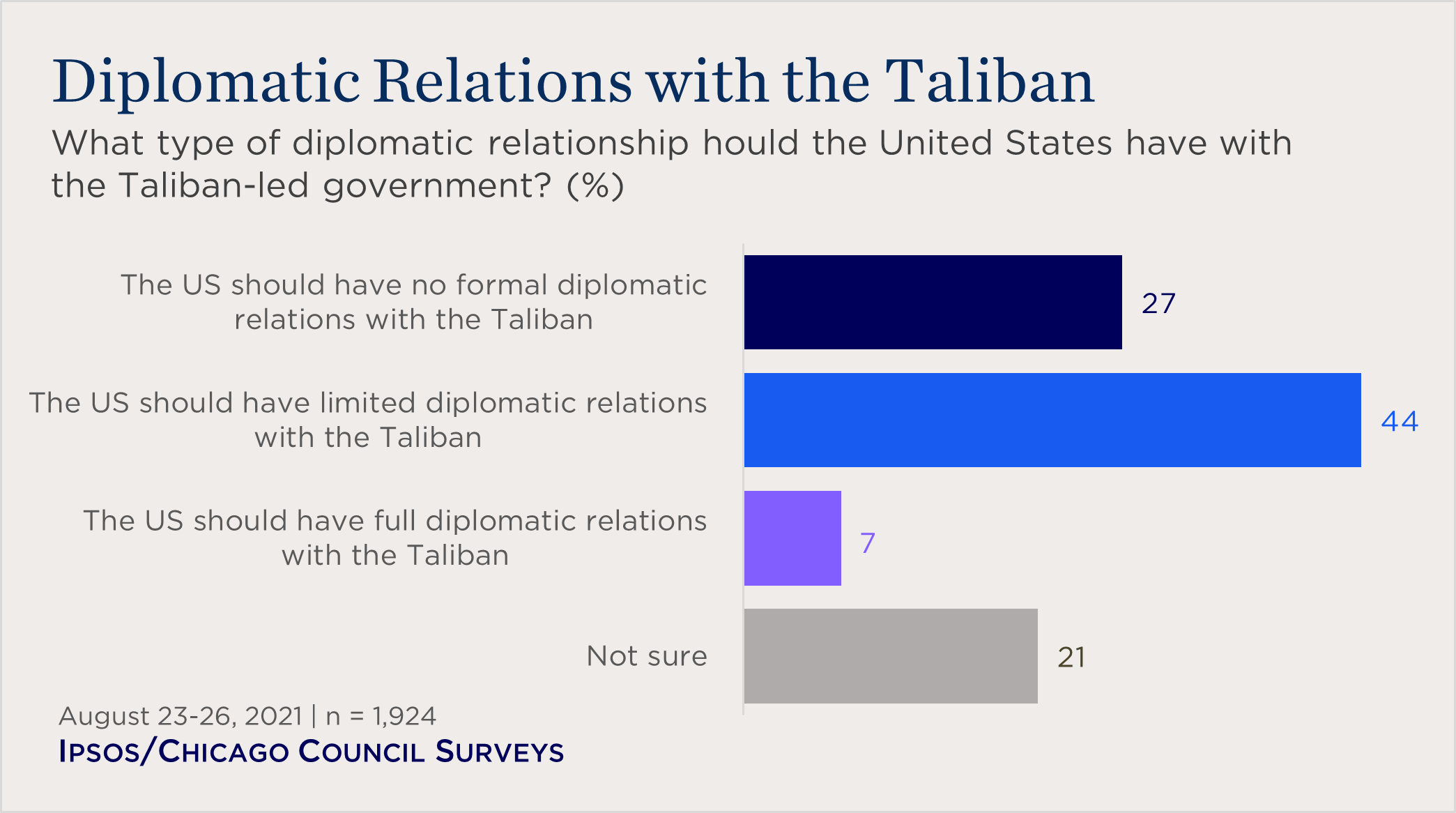
However, almost a year later, when asked if they would support or oppose the United States recognizing the Taliban as the legitimate government of Afghanistan, a strong majority (82%) of Americans said they would oppose it.
The Biden administration’s continued position stipulates that the Taliban must form an inclusive government, guarantee the rights of minorities and women, and sever all ties with terrorist groups before the United States could diplomatically recognize the current government or release frozen Afghan assets. Among Americans, the release of frozen Afghan assets is a highly unpopular policy choice, as 78 percent of the public would oppose the United States doing so—even though it would significantly improve economic and humanitarian conditions across the country.
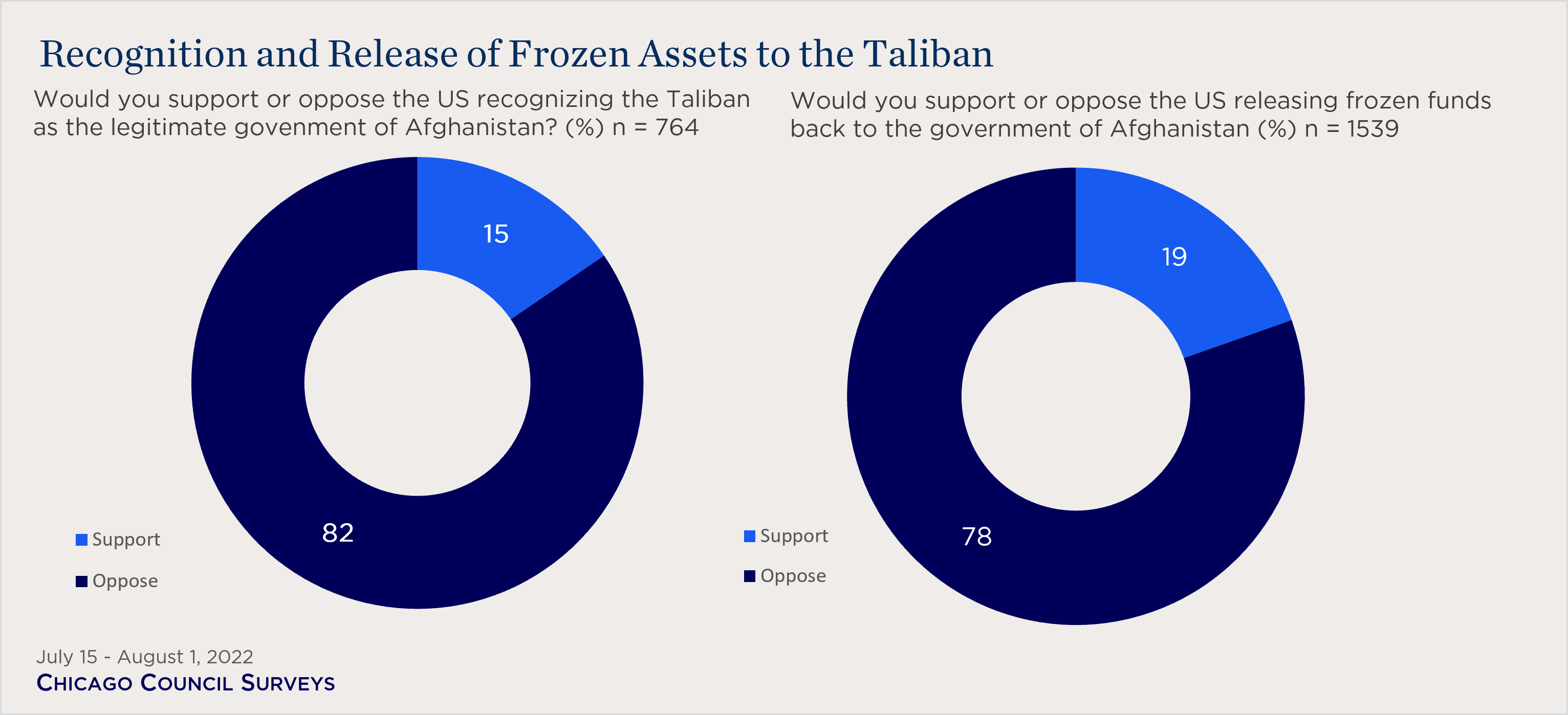
The United States has, since the Taliban’s takeover, provided $775 million in humanitarian assistance to Afghanistan but, according to the United Nations, a further $3.8 billion is needed to meet the humanitarian needs of the Afghan people. Warning of an impending famine, human rights experts from the UN, Democrats from the US House of Representatives, and representatives from several Central Asian states have called upon the United States to unfreeze Afghanistan’s assets to revive its economy. In an open letter to President Joe Biden and Treasury Secretary Janet Yellen, US lawmakers said that “maintaining this policy could cause more civilian deaths in the coming year than were lost in 20 years of war."
Instead of releasing frozen Afghan assets, Americans would rather the United States pursue policies that would improve conditions for the Afghan people but not necessarily empower the Taliban at the same time. For example, 74 percent of Americans support the United States providing food aid to the Afghan people. Americans also largely support (57%) the United States accepting Afghan refugees into the US, though to a lesser degree than they support the provision of food aid. This could prove important in the upcoming year, as humanitarian conditions are poised to worsen.
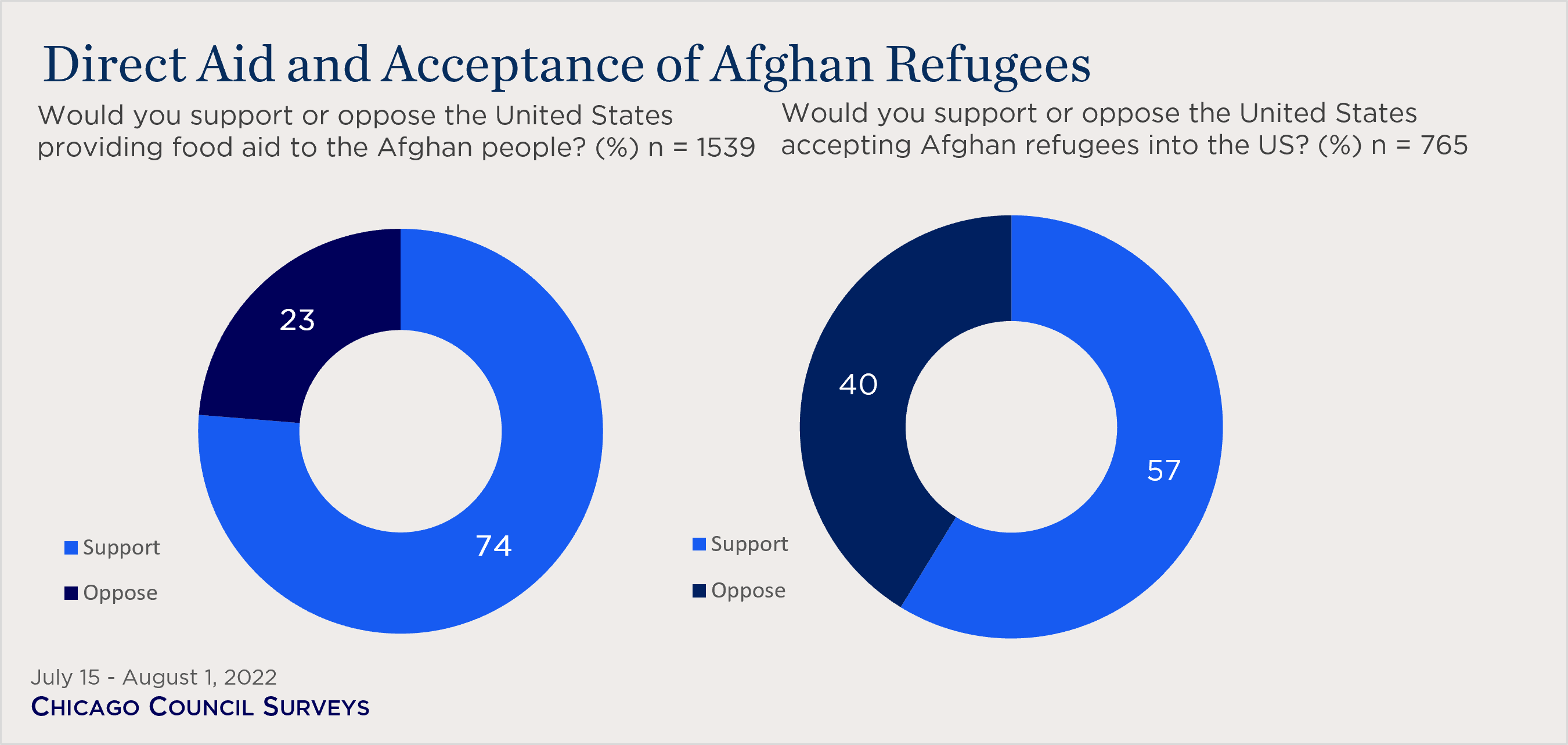


Related Content
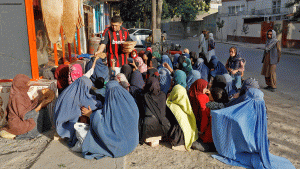 Global Politics
Global Politics
Experts Laurel Miller and Andrew Watkins join Deep Dish to unpack Afghanistan’s economic collapse.
 Public Opinion
Public Opinion
The 2022 Chicago Council Survey finds broad support for taking in Afghan refugees but not for releasing frozen funds to the Taliban.
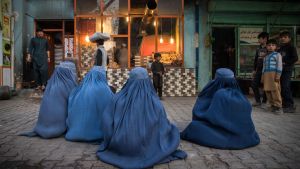 Human Rights
Human Rights
International Crisis Group’s Laurel Miller and former US Ambassador to Afghanistan P. Michael McKinley join Deep Dish to explain what the United States and the world should do to help the Afghan people.
